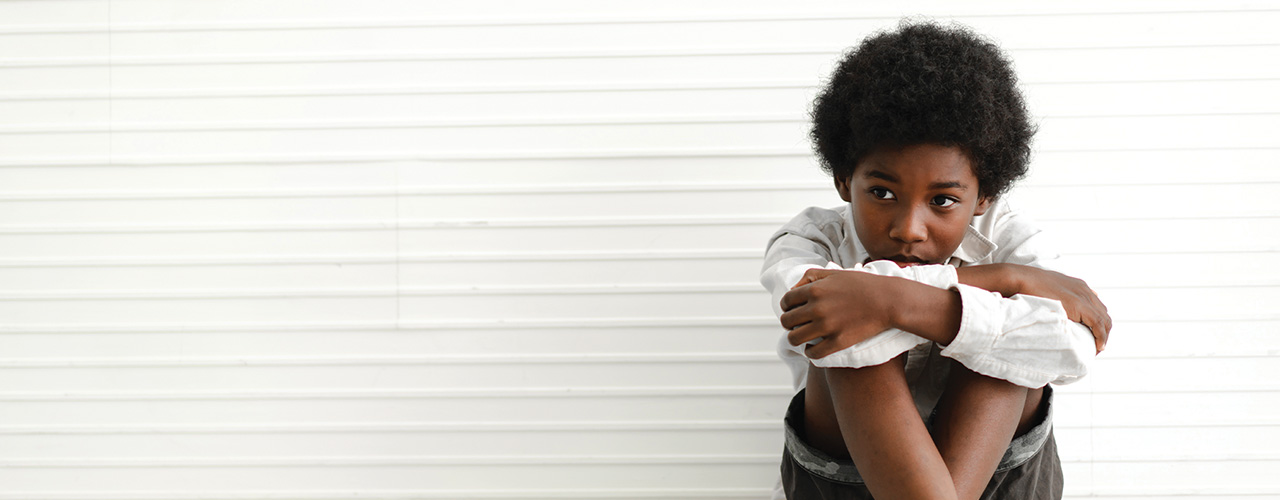Helping Children Manage Through Uncertainty, Stress and Anxiety
Valuable Tips for Supporting Children Through Difficult Times
Uncertainty, stress and anxiety in children is not limited to a pandemic, a sudden change in their school or negative events in our world. According to Dr. Robert Scaer, author of The Body Bears the Burden: Trauma, Dissociation, and Disease, trauma can result from “any negative life event that occurs in a position of relative helplessness.”
When it comes to a child’s development, reaction to stress, anxiety and life’s uncertainty can present in myriad ways and can range from the obvious and consolable to the internal and detrimental. Adults all have dealt with degrees of worry, burden, concern and even trauma during 2020. How do we help children through these difficult times, when we are not sure how to deal with them ourselves?
Get Back to the Basics
Maslow’s Hierarchy of Needs suggests that humans must have air, food, water, rest, health, shelter and safety before our brains will allow us to engage in higher level thinking skills. That doesn’t mean that if we are hungry, we can’t find our keys or solve a problem at work, but our bodies are made to take care of our physical well-being first. Problems become more challenging when we don’t have adequate housing or are in chronic pain.
Put Your Own Oxygen Mask on First
For those who have listened to the airline safety speech given by flight attendants, they always say, “In the unlikely event of a loss in pressure in the cabin, oxygen masks will be released. Be sure to secure your own mask before helping those around you.” What? Shouldn’t I help others, before I help myself? Typically, that is a good rule of thumb, but if you are running out of oxygen, you are no good to anyone and can be more of a problem.
In the midst of a pandemic, while an adult may be managing joblessness, loss of income, food insecurity, constant concern about becoming ill or actually being ill, children are looking to the adults they respect to see how they should act and react. Be sure to take care of you. Regularly, take a moment to breathe deeply. Don’t forget to do things that are fun.
Adults need to model behaviors that not only will show children how to survive during stress and trauma, but become stronger on the back side of it all.
Lisa Self
Assistant Professor, Child Development and Education
It is most important to engage children in healthy eating, getting plenty of sleep (the younger the child, the more sleep they need) and exercise or purposeful movement every day. Go on walks and play.
What should you play? Ask your child, “What would you like to play?” Get away from screens—yes, all of them—as well as the news and just focus on the children in your life. Do what they want to do and say “yes” as much as possible. Children have so little control over their lives, even on a good day, so giving them real choices and saying “yes” whenever we can will make a lifetime of difference to them. They feel heard, they feel respected, and they feel like they belong—another one of Maslow’s basics.
Talk About Situations When You Are Not “In” the Situation
If you and your child witness a customer yelling at a store employee because something is out of stock, analyze that situation later, once you have left the store. Instead of judging the customer or the employee, ask your child, “What did you think happened there?” “How do you think the employee felt by being yelled at?” “How do you think the customer was feeling?” “What could the customer have done differently?” “What could the employee have done differently?” Not being personally involved in the situation, it is easier to analyze it and apply the knowledge. This practice helps strengthen the child’s social, emotional and cognitive skills and helps them to consider another’s perspective.
When we see others’ perspectives, we are more likely to help them.
Take Your Children to Volunteer
Another way to help children is to move the focus from ourselves and our situation. Children can help neighbors or family members. Many non-profits allow children to serve if they are with an adult. Even and especially during the pandemic, non-profits need many hands to help those they serve. Helping and learning from others, and thereby experiencing that intrinsic feeling of satisfaction from giving time and effort, can do much for the soul and help redirect fear and worry.
If children, or adults, reach the point when the worry and anxiety overwhelm everyday activities, help is available through professionals who specialize in helping children and/or adults through mental health issues.
For more information about mental health services for children, visit:

